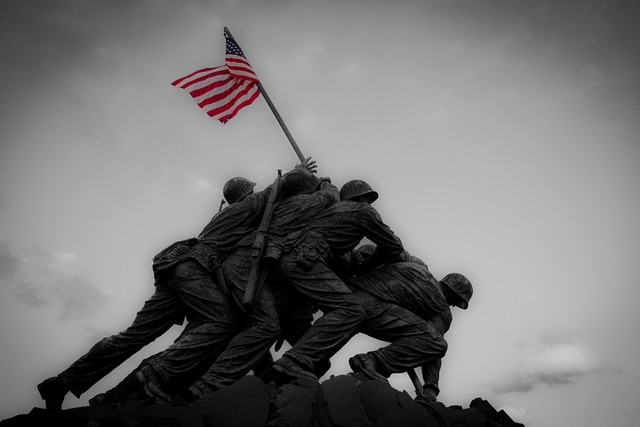Retired Military and Veterans Benefits Guide

In 2024, the Department of Veterans Affairs and the Department of Defense made changes to the rules for accessing VA benefits with military discharges that formerly didn’t allow access. If you received a bad conduct discharge or an other-than-honorable discharge in the past you may have assumed you didn’t qualify for VA benefits.
But that is not true, depending on the circumstances.
According to a press release by the Department of Veterans Affairs, “When former service members with other than honorable discharges and bad conduct discharges (adjudged at special court-martial) apply for VA benefits and services, we carefully review their records to determine if we can provide them the requested care and benefits.”
The Department of Veterans Affairs now urges those with other than honorable discharges and bad conduct discharges to apply for VA benefits. “Over the past 10 years, VA’s eligibility determination rate for these former service members has been 75%” which VA.gov says means VA provided care or benefits to 75% of the applicants with bad conduct or other-than-honorable discharges.
Related: President Biden Offers Pardons For Those Convicted Under Don’t Ask, Don’t Tell
Comprehensive Military Benefits Guide for Veterans & Retirees
There are military benefits for retirees of the US military, and benefits for veterans who have separated from the military without retiring. Those who retire typically have more options than those who separate. But that doesn’t mean a lack of certain options for those who separated before getting enough time in service to apply for retirement.
Military retirees draw a pension after performing the minimum amount of military service, which is 20 years at press time. Military retirees in the Guard and Reserve have different rules for “getting their 20” or earning 20 “creditable years” toward military service but a retirement check is definitely possible for those who serve part-time.
Read More: Retirement Pay for Guard and Reserve Members
Those who separate from the military without hitting their 20-year service mark are typically not offered retirement pay unless they have taken an early retirement offer that is sometimes provided in times when the military is trying to “draw down” or reduce its troop numbers.
But those who separate but do not retire still have certain benefits offered to them. Both retirees and those who return to civilian life without retiring may be eligible for a variety of benefits from the Department of Veterans Affairs. They can include, but may not be limited to:
- TRICARE
- VA Disability Compensation
- VA Pension
- VA Education Benefits
- VA Medical Benefits
- VA Home Loans
- VA Counseling and Career Support
- Veteran Healthcare Readjustment Services
- PACT Act-related benefits
There are other benefits. One important one for some? Those who have retired or separated are now permitted to live with their families in private on-base housing in the United States. Overseas locations are not included, but for those using this option in the USA, you will pay rent at a rate based on the local Basic Allowance For Housing.
Why is this allowed? More and more on-base housing is being privatized or has already switched to a public/private arrangement.
Government housing contractors are permitted to rent these homes to those who have retired or separated when sufficient vacancies exist. This option is not available at all bases, and the contracts may be limited to a year, depending on circumstances.
TRICARE Coverage for Military Retirees
Those who retire from the military and are eligible to draw retirement pay may qualify for TRICARE benefits. Qualifying for any one of these plans depends on variables such as your age, location, and whether you are eligible for Medicare Part A and Part B. Your options may include:
- TRICARE Prime
- TRICARE Select
- TRICARE Select Overseas
- US Family Health Plan
- TRICARE For Life
Read More: TRICARE: A Comprehensive Guide
TRICARE options are different for members of the Guard and Reserve and it’s not safe to assume that what applies to active duty retirees under TRICARE applies equally to those who served in the Reserve components. Most of the options listed above require enrollment (except for TRICARE For Life) and you may be required to pay a premium in some cases.
Read More: TRICARE for Active Duty Military Retirees
VA Disability Compensation for Military Retirees
VA disability compensation for military retirees works the same as for those who did not retire but was separated from military service. You must make a claim with the Department of Veterans Affairs, and submit medical records, service records, and supporting documentation.
There is no separate track for military retirees for this process. But being eligible to draw a military pension has been problematic for those seeking VA compensation for service-connected disabilities. Why?
Because until 2004, retirees were not allowed to draw both military retirement and VA compensation. Those eligible for both had to choose which to receive. Starting in 2004, there was a VA transition that eventually ended in 2014. Today you are permitted to receive both payments concurrently.
There is no need to apply for approval to receive both, those eligible to do so get both payments automatically once the paperwork for each is completed and approved. Military retirement pay is NOT the same as a VA pension, which is described below.
Related: Free VA Healthcare for World War Two Veterans
>> Frustrated with your VA disability rating? Register for a free consultation for help with increasing your rating to get the compensation you deserve.
VA Pension
Regardless of whether you retired or separated from the military, you may qualify for a VA pension if you meet certain requirements. You must meet some basic requirements to be considered, which include not having a Dishonorable discharge and meeting basic income and net worth limits.
There are other considerations. To be approved for a VA Pension, you must have:
Started –
- Active duty before September 8, 1980, and you served 90 days or more on active duty with at least one day served during a wartime period. OR;
- On active duty (enlisted) after September 7, 1980, and served at least 24 months OR the full period you were ordered to serve on active duty with at least 1 day during wartime. OR;
- As an officer on active duty after October 16, 1981, and you had not served previously on active duty for at least 24 months.
And finally, to qualify for a VA pension at least one of the following must apply to you:
- Are 65 years old or older
- Have a permanent and total disability
- Are a patient in a nursing home for long-term care due to a disability
- Are getting Social Security Disability Insurance
- Are receiving Supplemental Security Income
Eligible Wartime Periods for the VA Pension
Eligible wartime periods for the VA Pension include, as described on the VA official site, the following:
-
- Mexican Border period: May 9, 1916, to April 5, 1917
- World War I: April 6, 1917, to November 11, 1918
- World War II: December 7, 1941, to December 31, 1946
- Korean conflict: June 27, 1950, to January 31, 1955
- Vietnam War era: November 1, 1955, to May 7, 1975, August 5, 1964, to May 7, 1975, for Veterans who served outside the Republic of Vietnam.
- Gulf War era: August 2, 1990, through a future date to be set by law or presidential proclamation.
If you need to register for a VA Pension, fill out the online forms at the VA official site. The Department of Veteran Affairs offers a “pre-filled” form that populates some (but not all) of the application fields with information based on your account information with the VA.
You can save the application as you go but there is a time limit; you have 60 days from the start of your application process to the time you submit it. After 60 days your application is deleted and you must begin again.
To apply you must gather any supporting medical evidence needed for your claim, and you will need to supply your medical records, financial information, history of military service, your Social Security Number, and any supporting evidence to reinforce your claim.
VA Pension vs VA Compensation
The Department of Veterans Affairs offers qualifying veterans a choice between drawing a VA pension and collecting VA compensation for service-connected medical issues.
The basic differences include the fact that VA pension benefits are for those who served during wartime and the pension is need-based, whereas VA disability pay is offered to all who have qualifying service-connected medical issues no matter when they occurred in peacetime or wartime. Eligibility is not need-based but is determined by the nature and severity of the medical issues.
The VA official site reminds us in no uncertain terms: you cannot qualify for VA pension payments and disability compensation at the same time. The Department of Veterans Affairs will pay you whichever amount is greater, but not both.
Military Retiree Education Benefits
Those who retire or separate from the military have a variety of education benefits they can use in civilian life, starting with the GI Bill program. If you have not applied for the GI Bill before leaving the military, this is one of the first steps you should take in your journey toward a new degree, certificate, or training.
Learning whether you qualify for the GI Bill is only one step in the process- you will want to know if you are eligible for other VA education benefits such as Veteran Readiness and Employment, as well as other options.
Read More: Am I Eligible for VA Education Benefits?
There are many things to learn about the GI Bill; for example, those who wish to transfer this benefit to a spouse or dependent must do so while still on active duty–you cannot do so once you leave the service.
Read More: GI Bill Facts And Fiction
You may find the GI Bill could meet the entire cost of your basic education, but some students may need supplemental assistance from options like the Yellow Ribbon Program, state veteran education resources, etc.
Read More: The Yellow Ribbon Program and how it can enhance your GI Bill.
Thanks to legislation commonly referred to as the Forever GI Bill, the GI Bill underwent many changes. The Forever GI Bill changed how GI Bill benefits are transferred and used, how Post 9/11 GI Bill housing stipends are paid, and more. Some of these changes affect active-duty students, others affect those who are retired or separated, and some changes affect all users.
Read More: How The Forever GI Bill Changed Your Military Education Benefits
Other Military Education Benefits: Chapter 36
The Department of Veterans Affairs offers veterans and military retirees a Personalized Career Planning and Guidance (PCPG) program, or Chapter 36 benefits. This program offers educational and career guidance, planning, and resources. Who can apply?
Those who qualify for the GI Bill and who meet the following requirements:
- Being discharged under “conditions other than dishonorable” from active duty within six months. OR;
- Being separated from active duty under conditions other than dishonorable not more than 1 year ago. Or;
- You are a Veteran or service member eligible for VA educational assistance. Or;
- You are a service member, veteran, or dependent and eligible for VA education benefits.
Apply for these benefits in person at a VA office, online using VA Form 28-8832, or apply for Chapter 36 benefits online at the VA official site via Login.gov.
Other Education Benefits: Veteran Readiness and Employment (Chapter 31)
If you are retired or separated and have service-connected disabilities that affect the ability to hold or find a job, you could qualify for the Department of Veterans Affairs Veteran Readiness and Employment program, also known as Chapter 31 benefits or VR&E.
Qualifying for VR&E means you must have a VA disability rating of at least 10% and you must not have received a Dishonorable discharge. You must have at least one day of Post 9/11 GI Bill benefits remaining to qualify, but using VR&E benefits does not affect your GI Bill entitlement.
Apply for VR&E benefits online, in person at a VA office, by calling the VA, or use a Veteran Service Organization.
Read More: What Are Veteran Service Organizations?
VA Medical Benefits for Veterans & Military Retirees
Whether you have retired or separated, if you intend to claim with the Department of Veterans Affairs for compensation due to a service-connected injury or medical condition, you will need to apply with the VA formally.
There are procedures you will need to follow, evidence to collect, and records to gather. The basic claim process does not change based on your status as a retiree or as someone who has separated from military service.
Read More: 5 Tips for Applying for VA Disability Benefits
VA Home Loans for Veterans & Military Retirees
Like some other VA benefits, the opportunity to apply for a VA loan is not contingent on you being a retiree versus having separated from the military without retiring. We mention this frequently in this section; it would be easy to assume that since military retirement pay is contingent on serving 20 years, other benefits might be as well. This is NOT true of VA loans.
VA mortgages require a minimum amount of time in uniform. However, they do not require a 20-year military career, and junior enlisted candidates qualify for the same VA mortgage options after they have served the required time, the same as high-ranking career military members.
Retirees and veterans who did not retire are free to explore their VA loan options. VA loans allow you to use your military retirement pay, VA compensation for service-connected medical issues, and your civilian job, where applicable, to qualify for the mortgage.
What you cannot do, regardless of your status as a currently serving military member, veteran, or military retiree, is to use the Post 9/11 GI Bill housing allowance as qualifying income. We mention this only because some don’t realize this is true and make their immediate post-military plans based on potential income that won’t be counted toward VA loan approval.
Read More: Questions and Answers About VA Home Loans
>> Get your questions answered with a free VA Loan consultation
VA Counseling and Career Support
The Department of Veterans Affairs offers a Transition Assistance Program or TAP aimed at those who are about to retire or separate from military service. The VA official site notes that about a quarter of a million service members make the switch from serving to civilian life each year.
TAP includes help one year from your retirement or separation date and a full day of VA-specific transition assistance offered through the VA Benefits And Services program. The VA official site describes this training as including “interactive exercises, real examples, and covers topics important to you like family support, disability compensation, education, and health care benefits.”
Transition Help for Women Veterans
There is also a health-related VA TAP program specifically for women veterans through an online, self-paced option called Women’s Health Transition Training. This option is offered to those currently serving and retired/separated alike and is available online. You can subscribe to the VA Center for Women Veterans emails for more information and updates about upcoming Women’s Health Transition Training course opportunities.
Chapter 36 Benefits
The Department of Veterans Affairs offers veterans and military retirees a program called Personalized Career Planning and Guidance (PCPG). Also known simply as VA Chapter 36 benefits, you may qualify for educational and career guidance, planning, and resources under this program.
If you qualify for the GI Bill, you may qualify for Chapter 36 benefits. Other requirements include:
- Being discharged under “conditions other than dishonorable” from active duty within six months. OR;
- Being separated from active duty under conditions other than dishonorable not more than 1 year ago. Or;
- You are a Veteran or service member eligible for VA educational assistance. Or;
- You are a service member, veteran, or dependent and eligible for VA education benefits.
Under Chapter 36, you may qualify for career counseling, help to find a new path of study and readjustment counseling that can help you transition from military member to veteran student. There is also resume support and career planning help offered under Chapter 36.
You can apply for these benefits in three ways; in person at a VA office, online using VA Form 28-8832, or you can apply online at the VA official site via Login.gov.
Applying online requires completing an initial questionnaire to determine the proper form for you as a veteran, active duty service member, retiree, etc.
Veteran Readiness and Employment (Chapter 31)
Military retirees and veterans with service-connected disabilities that affect the ability to hold or find a job may qualify for the Department of Veterans Affairs Veteran Readiness and Employment program.
These benefits are sometimes referred to as Chapter 31 benefits or VR&E. You can apply for VR&E through the VA official site; to qualify, you must have a VA disability rating of at least 10% and not have received a Dishonorable discharge.
Being approved for a VR&E program requires you to have at least one day of Post 9/11 GI Bill benefits remaining. Using VR&E benefits does not count against your GI Bill benefits.
Apply for VR&E benefits online, in person at a VA office, by calling the VA, or using a Veteran Service Organization.
Read More: What Are Veteran Service Organizations?
>> Find companies that help place veterans with CareerRecon
Veteran Healthcare Readjustment Services
The Department of Veterans Affairs offers transition care, including mental health services for qualifying veterans transitioning from military to civilian life. The VA official site says it assigns VA Liaisons for healthcare at all major military medical treatment facilities to help transition from military care to civilian care.
VA.gov says that since 2003, “VA Liaisons for Healthcare will meet with you early in your transition to ensure access to VA health care at the appropriate time in your recovery and rehabilitation process,” where applicable. Not all veterans may need or require this support, but it is available when needed at VA facilities nationwide.
VA PACT Act Benefits
The PACT Act and related legislation have expanded veterans’ opportunities to get care and compensation for service-connected medical issues related to toxic exposures. Learn more about the PACT Act and how you could be entitled to additional VA compensation for such medical issues. There are additional laws such as the SERVICE ACT, which focus on specific medical issues such as breast cancer.
Claim your PACT Act benefits by filing a claim with the Department of Veterans Affairs.
If you have never applied for VA disability benefits before, complete VA Form 21-526EZ and submit it according to the instructions on the form.
Read More: What VA Forms Do I Need To Claim Disability?
Have you already applied for VA disability benefits? Was your claim was denied? If the conditions you applied for are now presumptive, file a VA Claim Decision Review Request: Supplemental Claim, VA Form 20-0995 with the Department of Veterans Affairs.
In 2024, changes to PACT Act regulations offered more veterans with certain types of toxic exposures in the line of duty to file claims. If you served in any of the following areas you may qualify for PACT Act benefits:
- Afghanistan
- Somalia
- Djibouti
- Egypt
- Jordan
- Lebanon
- Syria
- Yemen
- Uzbekistan
- Southwest Asia (including Iraq)
VA.gov says those suffering from a VA presumptive condition “may be entitled to disability compensation benefits,” and if you havce previously filed a VA claim but were denied, you should apply again under the new guidelines.
You can apply for PACT Act benefits at the VA official site.
Frequently Asked Questions (FAQs)
Can veterans with a bad conduct or other-than-honorable discharge receive VA benefits?
Yes, veterans with a bad conduct discharge or other-than-honorable discharge may still qualify for VA benefits. The Department of Veterans Affairs reviews these cases carefully, and in the past 10 years, 75% of applicants with these discharges have received care or benefits.
What military benefits are available to retirees and veterans who did not retire?
Both military retirees and veterans who separated without retiring can access various benefits. These may include VA disability compensation, VA home loans, VA educational benefits, and more. Eligibility requirements vary based on discharge status and service history.
How does VA disability compensation work for military retirees?
Military retirees can receive VA disability compensation just like those who did not retire. There is no separate application process for retirees, but they must submit medical and service records to support their claims.
About the author
Editor-in-Chief Joe Wallace is a 13-year veteran of the United States Air Force and a former reporter/editor for Air Force Television News and the Pentagon Channel. His freelance work includes contract work for Motorola, VALoans.com, and Credit Karma. He is co-founder of Dim Art House in Springfield, Illinois, and spends his non-writing time as an abstract painter, independent publisher, and occasional filmmaker.


